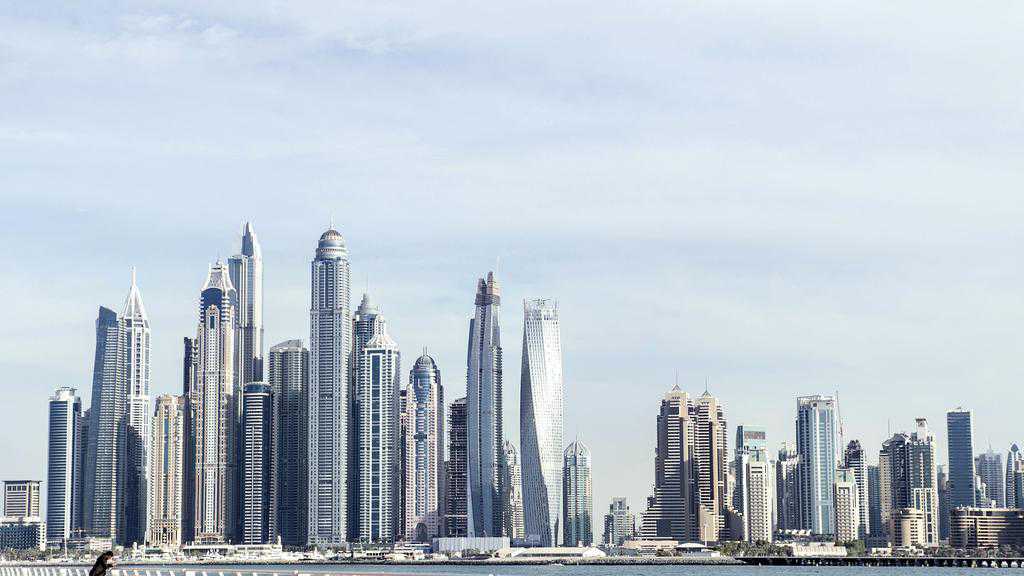How sustained US dollar weakness will advantage the UAE
25 November, 2020

The US dollar’s recent losing streak is positive for the UAE's non-oil sectors, however the ramifications of Covid-19 will limit the boost to the economy.
The greenback dropped to a two-and-a-half year low this week as fast-tracked plans to roll out a coronavirus vaccine in the US bolstered appetite for risk assets. The dollar’s charm as a secure haven is likely to weaken on the chance of a viable vaccine and improving global growth.
The dirham’s peg to the world’s reserve currency signifies that a weaker dollar could have a knock-on influence on the UAE's property marketplace, remittances and travel and tourism sector.
“A weak US dollar is a raise for the UAE’s non-oil economy, building the economy considerably more competitive, especially in European countries and Asia,” Scott Livermore, chief economist at Oxford Economics, said.
The UAE would desire a sustained period of US dollar weakness to reap the entire advantage of relatively lower pricing, Mr Livermore added.
“Surviving in the UAE could possibly become more expensive because of higher import rates," he explained. "A weaker US dollar as well reduces the purchasing ability of the UAE’s essential oil revenues but given the economy’s fiscal strength, that is unlikely to constrain federal government policy.”
The Bloomberg Dollar Area Index, which tracks the greenback against a basket of six major rivals, recovered from its two-and-a-half year low on Mon and was hovering at the 92.235 level on Tuesday (3pm UAE time).
The dollar has fallen more than 11 per cent from its record saturated in March, while a dovish US Federal Reserve will also sustain strain on the greenback after pledging to keep interest levels at close to zero for the next three years.
Weaker currency exchange rates will have a positive impression for international investors thinking of buying property found in the UAE.
“In the case where in fact the dollar peg to the dirham is lower, investors holding various other foreign currencies benefit and may tend to make a pay for found in the UAE sooner instead of later,” Will McKintosh, brain of residential and investment transactions at JLL Mena, said.
A weak US dollar is a boost for the UAE’s non-oil economy, building the economy considerably more competitive, especially in European countries and Asia
Scott Livermore, Oxford Economics
“As such, any foreign trader holding USD, or perhaps another USD-pegged currency, might choose to carry off from making the decision until they feel their currency position offers better.”
Although it has been a challenging year due to Covid-19, there has been increased interest in the Dubai industry from local and overseas buyers, Mr McKintosh added.
Property also enjoys a safe-haven position during uncertainty in foreign currency markets.
“We are currently seeing a record level of demand and transactions in the secondary marketplace, driven by both increasing degrees of end users and buyers,” Lewis Allsopp, leader of Dubai-based property broker Allsopp & Allsopp, said.
The combo of a weak dollar and increasing property prices using areas in Dubai for the very first time in a lot more than six years means some savvy investors will consider it an opportune time to enter the market, Mr Allsopp said.
Meanwhile, a weak dollar may possibly also weigh about the UAE’s remittance volumes. However, expatriates with regular commitments in other currencies will still need to service them.
“There can be a 2 to 5 % drop in remittance volumes from the UAE as it can be expensive to remit,” Rajiv Raipancholia, leader of Orient Exchange, said.
“The dollar is likely to weaken against important currencies. The remitting vitality of consumers will certainly reduce as it would expense them more in dirhams to remit the same volume, for instance, in Indian rupees or Philippine pesos.”
A weaker greenback may possibly also attract more overseas cash to UAE equities. Indian, Chinese, Russian and British shareholders could suddenly find UAE equities more attractive because they become cheaper in their local currencies, relating to Vijay Valecha, chief expenditure officer at Century Financial.
Another effect will be the UAE growing to be a less expensive holiday destination for aspiring travellers, that may buoy the neighborhood hotel industry.
“On a macro level, a weak dollar will boost export competitiveness of the UAE’s non-oil market, which makes up about almost 70 % of its gross domestic merchandise. A weak dollar can be a great for crude essential oil, which may be the biggest revenue of the UAE federal government,” Mr Valecha said.
Source: www.thenationalnews.com
TAG(s):
